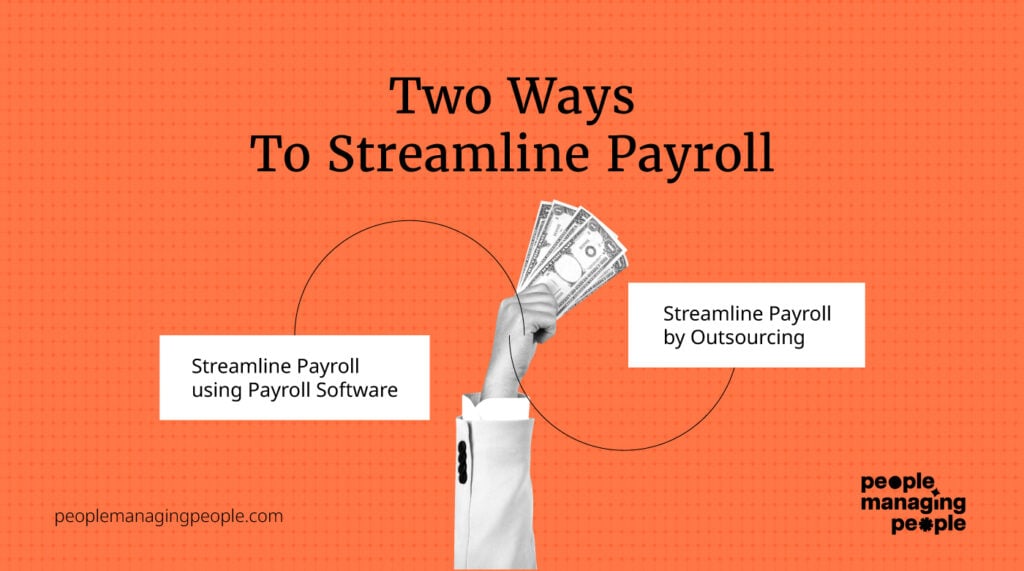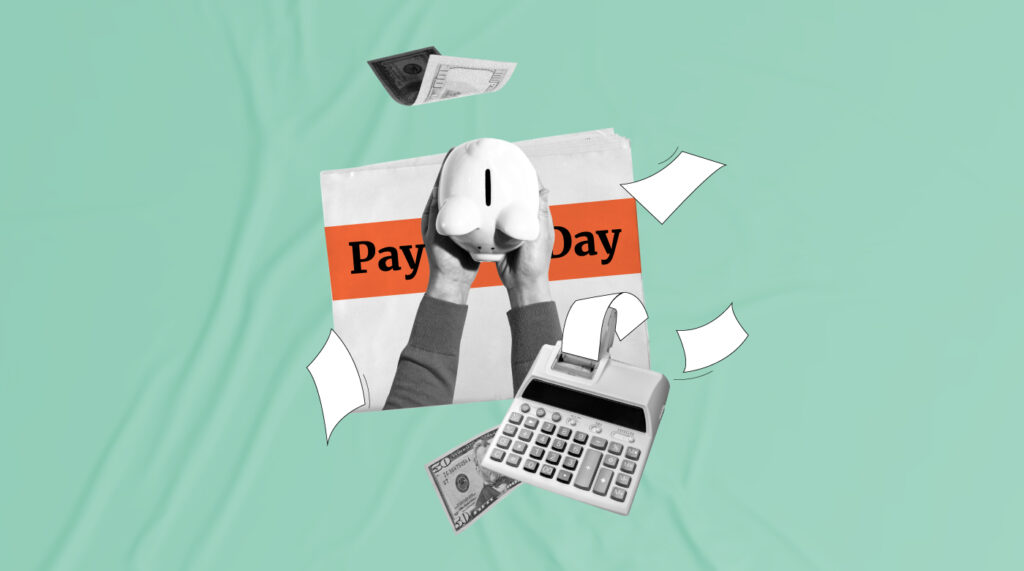Payroll responsibilities intersect with human resources and finance departments. So does HR do payroll? Or should it be under the finance department’s oversight?
The short answer is both. Human resources is an employee-facing role, so it makes sense for them to take care of all things employee relations. Finance, however, handles the cash flow, so it makes sense for them to dole out the checks.
There's some obvious overlap here, and in situations such as hiring, salary increases, bonuses, benefits, vacation leave, sick leave and termination, both HR and finance need to be involved. Here I'll help you outline how it can be divided.
How To Allocate Payroll Responsibilities Between HR & Finance
| Responsibility | HR | Finance |
| Change in salary or pay rates | X | |
| Tracking termination, start dates, and hours | X | |
| Designing and changing the benefits program | X | |
| Answering employee questions about payroll | X | |
| Ensuring information confidentiality | X | |
| On-time payroll processing | X | |
| Complying with tax law | X | |
| Auditing payroll data | X | |
| Reporting | X |
HR’s Role in Payroll
Payroll is an employee-facing function, which inevitably brings HR into the picture.
Many payroll admin responsibilities like changes in compensation, benefits, and bonuses warrant HR’s involvement.
Here are examples of HR’s payroll responsibilities:
- A change in salary or pay rates: Since HR is responsible for employee relations, HR is responsible for communicating any changes in their salary or pay rates.
- Tracking termination, start dates and working hours: Tracking the number of hours worked is important when paying contractors or freelancers. It’s also important to track the start and end dates of the contract with employees and third parties to ensure you don’t overpay and can terminate benefits on time.
- Designing and changing the benefits program: Employee benefits can often make up a large portion of payroll costs. Since HR is responsible for employee satisfaction, they should have the flexibility to design and make changes to it.
- Answering employees’ questions regarding payroll: Employees may have questions about bonuses or benefits. Allowing HR to answer these questions ensures that employees receive satisfactory answers, avoiding attrition.
- Ensuring information confidentiality: Payroll information is confidential. This is why it’s best handled by the HR department. HR professionals already understand how to deal with sensitive information.
- On-time payroll processing: The payroll function is time-sensitive—63% of Americans are living paycheck to paycheck. Employees need to be paid on time to prevent attrition and a decrease in morale. But your friends handling the finance function might have some arguments against this.
Finance’s Role in Payroll
Finance is central to payroll processing. Reconciliations, adding entries to the general ledger, and complying with payroll tax laws are critical for any business. Often, these aren’t responsibilities HR is trained to handle.
Here are examples of finance’s payroll responsibilities:
- Complying with the tax law: Businesses need to withhold and pay taxes like FICA (Federal Insurance Contributions Act) to stay compliant. Some cities and counties also require businesses to directly pay the employee’s income taxes. Employers also pay federal unemployment taxes. These rules are subject to change over time, so it’s critical for someone who knows tax law to do payroll.
- Auditing payroll data: Payroll data needs to be audited to ensure there are no inaccuracies and that you’re complying with all the laws. Since HR isn’t trained to audit financial data, finance is the best team to handle the audits.
- Reporting: Payroll is the largest expense for most companies. Stakeholders need accurate information about payroll costs, and since financial reporting is finance’s responsibility, it makes sense they also handle payroll reporting.
Two Ways to Streamline Payroll

By now, you probably understand why unless you are running a small business with limited team members, payroll is best handled jointly by HR and finance. Let’s talk about how you can streamline payroll at your organization.
Streamline Payroll Using Payroll Software
Automation is quickly changing how everyone does their job. Over the next few years, we’ll see both HR and finance hand over a lot of their payroll duties to automated solutions.
Here are tasks that the best payroll software solutions can automate:
- Tracking employee hours
- Calculating net and gross pay based on pay rates, benefits deductions, and taxes
- Calculating FICA, unemployment, and other taxes that need to be withheld or paid
- Auto-generate forms required for payroll compliance like P60 (if you’re in the U.K.) and Form W-2 (if you’re in the U.S.)
- Year-end reporting.
Payroll software offers small businesses more control over payroll by eliminating the number of payroll-related tasks they need to handle. Of course, you’ll need to select a product from one of the best payroll companies to ensure you never end up in legal hot waters.
Streamline Payroll by Outsourcing
Instead of stressing over which department will handle which part of the payroll process, you can outsource the payroll department to external payroll professionals.
If you’re a small business or startup and don’t have in-house resources to manage payroll, hiring a reliable payroll service can help keep costs under control while ensuring compliance.
Many businesses are understandably wary of allowing a third party to handle employee data. If you want more control over payroll while investing minimal resources, consider payroll co-sourcing, a hybrid model where you perform some tasks in-house and outsource others.
Here are examples of payroll responsibilities you can outsource:
- Payroll account and payment method setup
- Tracking working hours
- Calculating wages and deductions
- Paying and withholding payroll taxes
- Processing payments
Read our guide to HR outsourcing to discover what other HR functions could be benefit from being outsourced.
Why HR and Finance Should Both Handle Payroll
Where possible, it’s in your best interest to involve both HR and finance in payroll processing. This ensures you’re keeping employees happy, ensuring the confidentiality of employee data, and staying compliant.
Plus, there are some reasons why HR shouldn't be solely responsible for payroll:
- The HR function will need access to the finance system: Given the breadth of payroll management responsibilities assigned to the HR, they might need access to your finance system. The problem? Most companies wouldn’t be comfortable allowing anyone outside of finance to use it.
- Compliance risks: Payroll operations involve complying with tax regulations and other risks that make an argument in favor of the finance department handling the payroll system. Non-compliance is expensive and quite common—the IRS collected over $4 million in civil penalties on employment tax errors alone including inaccuracies, fraud, and failure to pay.
And there are reasons why finance shouldn't be solely responsible for payroll:
- Privacy risks: People with no HR training shouldn’t handle personal employee information. This can lead to a serious breach of privacy and loss of reputation.
- Employee relationship management: Accountants aren’t trained to manage employee relationships. If employees have concerns about payroll and the accounting team isn’t able to satisfactorily handle the situation, employee resentment could grow and result in high employee turnover.
But, over time, this question won’t matter as much. As HR software with automation starts taking care of routine tasks, you’ll need to engage fewer people in performing routine payroll tasks like calculating taxes. You’ll still need help from HR and finance but for more strategic tasks like benefits and auditing.
If your business has only one employee, software services can still be helpful in creating a consistent process around payroll to make reporting and compliance tasks easier.
If you enjoyed this article, join our supportive community of seasoned HR professionals and leaders passionate about sharing knowledge and building organizations of the future.


